SOMERVILLE — Kelly Payson-Roopchand has a master’s in international agricultural development and a doctorate in agricultural communication and education. She’s a self-described nerd, a student of science, who prepared herself rigorously for a career in the field of agriculture. Maybe as a policy maker, an advisor, an academic; her credentials include being a Fulbright Fellow.
Instead she is standing in a literal field in Lincoln County, swatting flies while she gazes down at freshly cut grass. Her family’s grass, and one of their sources of income.
“It looks good,” she said to her husband Anil, who had paused in the haying – Day Two of the chore under the scorching July sun – to greet her and their two children, Keiran, who turns 7 next week, and Sarita, 5. “This has a lot of clover in it.”
Farm life, the subject she studied, has become her reality. But she’d barely arrived on this 80-acre farm at the end of a dirt road in Somerville and begun pulling her first weeds before the researcher in her reared its head. It happened when Don Hewett, the man who had farmed this land from 1936 to 1986, started to tell her stories of the farm that had been in his family for six generations. Absent an heir who wanted to run the dairy, he had sold his cows and built a small house across the road, where he and his wife, Shirley, retired. The Hewetts had watched as three other erstwhile owners came and went before the Payson-Roopchands arrived in 2009 and began to settle in. This couple – Kelly, who had grown up primarily in China, Maine, the daughter of a Colby professor, and Anil, who had grown up in Trinidad on a homestead with a bus driver for a father – must have seemed more likely to stay. He started telling them the stories of the place, what got built when, what his great-grandparents had farmed (sheep) and what the origin of a chalk heart around the word “Tractor” on the garage wall was.
“I knew right then that I wanted to know the whole history of the farm,” Payson-Roopchand said.
Not just to know it, as it turns out, but to tell it herself. The result is “Birth, Death, and a Tractor: Connecting an Old Family Farm to a New Family,” a blend of memoir about her first year on the farm, oral history about Hewett’s family and extensive research. It was published last month by Down East Books. The effusive blurbs on the back read like a Who’s Who of Maine farming: C.R. Lawn, founder of Fedco Seeds; Congresswoman Chellie Pingree; Maine Farmland Trust president John Piotti; and John Bunker, agricultural historian, who calls the book both “intimate and meticulously researched.”
Over the course of five years, Payson-Roopchand dove into old records, from land surveys to deeds and handwritten censuses, with the Hewetts’ blessing and assistance. She read agricultural histories of Maine and New England and family cookbooks and pored over fragile letters more than 150 years old, all in the service of telling Hewett family history. “Birth, Death, and a Tractor” is indeed intimate, but it also serves as the framework for the larger story of family farming throughout Maine and beyond, a story of small incomes and big rewards, early mornings and late nights and above all, a fierce commitment to living simply on much loved land. That too was a story Payson-Roopchand urgently wanted to tell.
“Life on the farm is so profound and beautiful,” she said. “And I do feel that we’re an endangered species.”
DONNY BOY
Payson-Roopchand starts a tour of Pumpkin Vine Family Farm with a hike up to upper fields, where the best views are. She points out Patrick Mountain (such as it is at 873 feet), which still bears Somerville’s original name (it was Patricktown Plantation until 1858), then lets Keiran lead the way across a meadow into the woods. Anil’s father, Roopchan Rambharose, visiting from Trinidad since January, had been clearing brush from an old logging road of Don Hewett’s that meanders through their wood lot. Rambharose, 68, did so using a machete, a farming tool he knows well from Trinidad, where he once worked on a sugar plantation and briefly raised bananas, pineapples and cassava for sale from the family homestead. Keiran uses a stick to imitate the cutting action of his grandfather’s machete and his voice to imitate the Trindidadian side of his family’s sing-song speech, while his mother talks about the obstacles she faced in researching a Maine farm family that had no claim to fame.
“There were holes in the story that would get bigger,” Payson-Roopchand said laughing. “And then smaller. And sometimes bigger.” For instance, there was the mystery involving Hewett’s great-great grandfather Ephraim Kennedy. He’d married the daughter of Sebra Crooker, a shipwright who left Newcastle in about 1808, journeyed up the Sheepscot and come to what was then Patricktown. He cleared the land, settling there with his wife, Lydia, and their growing family. The Hewetts shared an old letter from a man named Samuel Kennedy who referred to Ephraim as “brother” and scolded him for choosing such a “dark corner of the globe” to settle in, one with “little society to enjoy.” Payson-Roopchand could find no record of Ephraim having a brother named Samuel, no matter how deeply she researched.
Sometimes the Hewetts’ oral histories didn’t quite match up with the written – they believed Sebra Crooker arrived in Patricktown in 1801, but everything Payson-Roopchand found indicated he came later. Based on census records, 1808 was her best guess.
“A lot of it was like detective work,” she said.
From her work in international agriculture – work that took her to the Caribbean, where she met Anil, who had just finished his master’s in animal science at the University of the West Indies – she knew one basic truth about interviewing subjects.
“The story you hear depends on you as the interviewer,” Payson-Roopchand said. “It’s a relationship that happens.”
But there was little debate about how the farm had evolved over the years since then.
“Don knew more or less what each generation had done,” she said. “Their story was really the story of farms across the nation.”
The first two generations were homesteaders, the third moved into sheep in the 1860s, sheep whose fleeces were made into wool for military uniforms and blankets. Around the turn of the 19th century, the family shifted to poultry and, when the first refrigerated train cars began running between Maine and Boston, dairy. Don’s father’s parents focused on dairy and so did he. The logging road Keiran was leading his mother down represented side ventures, a wood lot to keep the family warm and a Christmas tree business, diversifications intended to bring in extra income.
“You look for things that complement each other,” Payson-Roopchand said. For them, that includes raising meat pigs, who eat the waste product from her cheese making – “whey-fed pigs are so succulent” – and selling wood from the wood lot. Sausage making is a possibility, as well as using Anil’s butchery skills to establish an abbatoir. They’ve begun the process of putting in a pick-your-own-pumpkin patch to match the name they’ve given the Hewett’s old place: Pumpkin Vine Family Farm. In Trinidad, a pumpkin vine family is a term for one with large extended networks. That’s this family, with its strong vines stretching between the Caribbean and Maine.
Reminders of the earlier occupants will always be there, though. Sarita shares a birthday with Shirley Hewett. One of Don’s beloved tractors will come to live at the farm again soon; his son has offered it as a gift to the Payson-Roopchands. And then there is the family’s 6-month-old but already giant puppy, nosing his way through the underbrush. He is half Great Pyrenees, half Anatolian shepherd and is already working for the family, protecting the goats and rabbits and pigs from possible predators.
Don Hewett died this February, and the dog arrived shortly thereafter. They named him Donegal – it didn’t feel right to outright name him Donald – and call him Donny Boy because the dog guards and protects the farm; he is their beloved mentor’s namesake.
PAST, PRESENT AND FUTURE
This is the first year the Payson-Roopchands have registered the farm as a commercial venture. They’ve been cautious about making that leap, knowing how hard it is to make a go of it without solid income from off the farm. For the first six years, Anil worked at Lohmann Animal Health, a vaccine company in Winslow, but he quit a year ago. It was time to get serious, he said. “We didn’t want this to be like a hobby farm,” he said.
Meanwhile Kelly worked at Fedco and when she could, on the book. She’s officially the town clerk of Somerville now, a three-day-a-week position she considers almost duty-bound to do. Don Hewett was always involved in local government, serving as selectman for three decades, and she wants to continue that tradition of service. “Those are big shoes to fill.”
Somerville, a town founded on farming, had 96 farms at its height in 1880, and today it has just one: the Hewetts’ old place. Because of that, the community is vested in Pumpkin Vine Family Farm, Payson-Roopchand said.
“When we put our new windows in the barn, people were so happy for us,” she said. “People are really psyched to see it going back to being a farm.”
They keep adding new elements to the farm – this year it is a weeklong farm camp for local children. Eventually, they want to be able to boost Somerville’s economy by offering work to locals. “Don was a job creator,” she said.
Will she write another book? “I could write stories about every day here,” she said. But for the time being, there is gouda and asiago to learn how to make. The two new Jersey calves, named Jenny and Julia for earlier matriarchs of this farm, will broaden the scope of her cheese making. She also expects that Pumpkin Vine Family Farm will go into the Christmas wreath business in the winter. She tried her hand at a giant one last December and hung it on the wall of the barn. She knew that Don Hewett, ailing then, could see it from his bedroom window. “It was like a signal,” she said.
He rarely if ever called her, she said, being too much of a Mainer to pick up the phone if he didn’t have to. She started to tear up as she told the story.
“He called to tell me he liked the wreath,” she said. He understood, she said, that the wreath was an emblem of his farm’s future. “He knew we were working on it,” Payson-Roopchand said, wiping away well-earned tears.
Copy the Story Link
Send questions/comments to the editors.


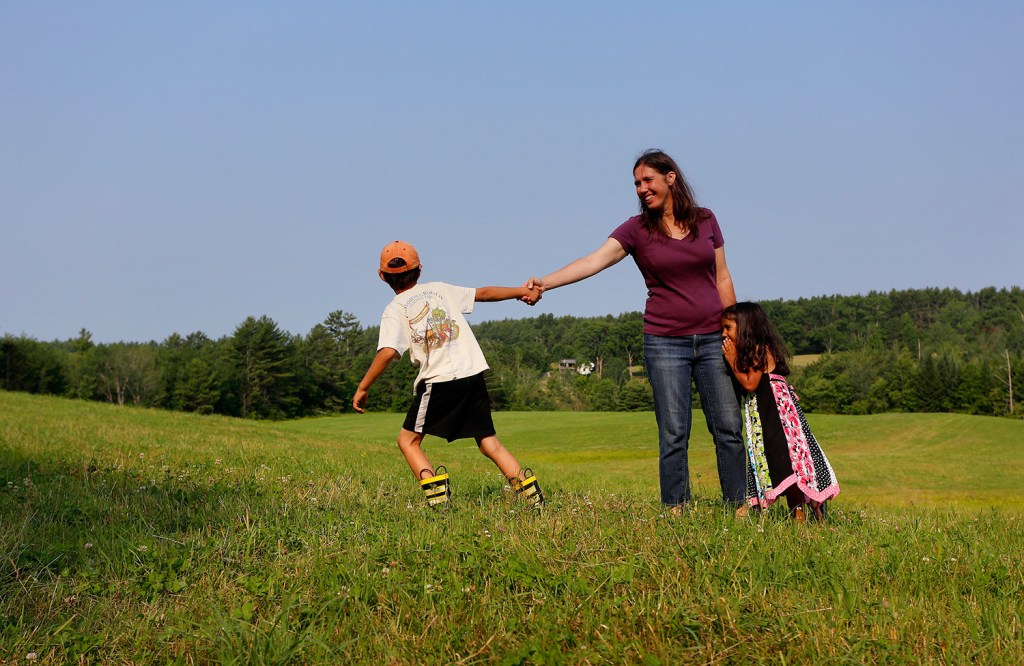
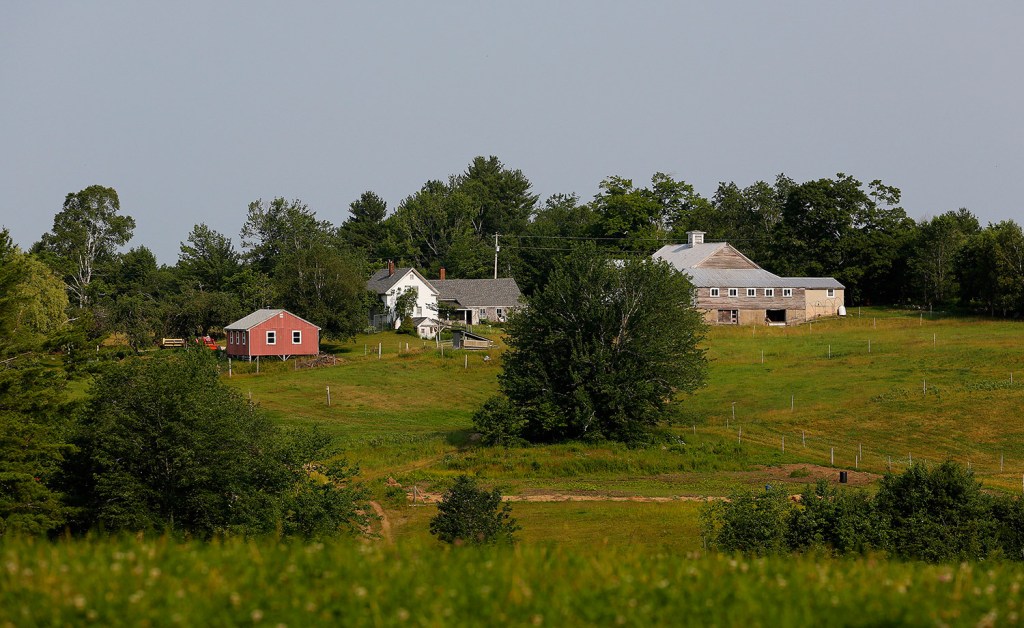
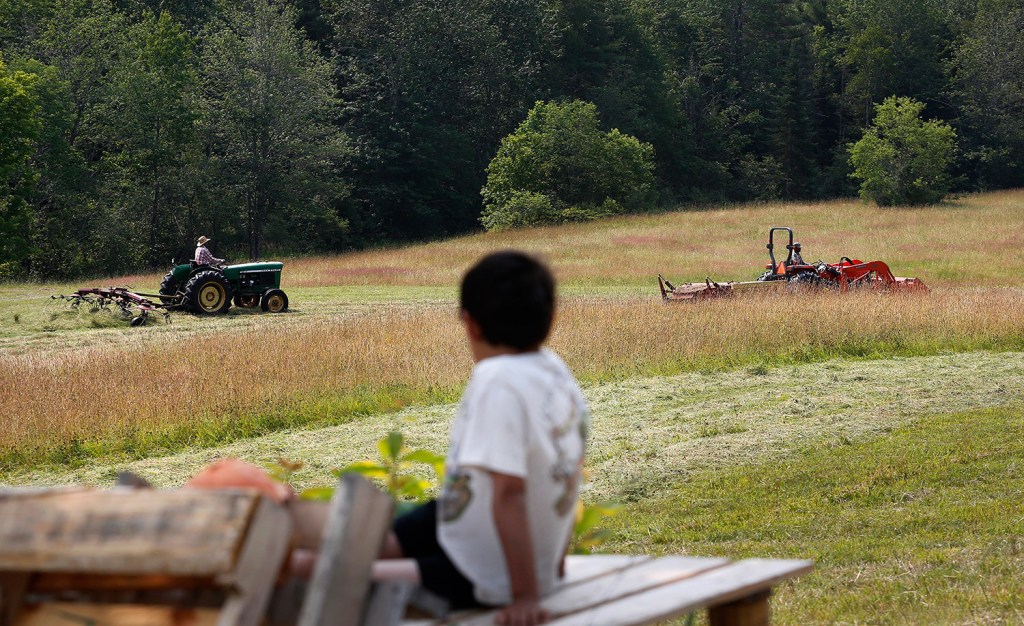
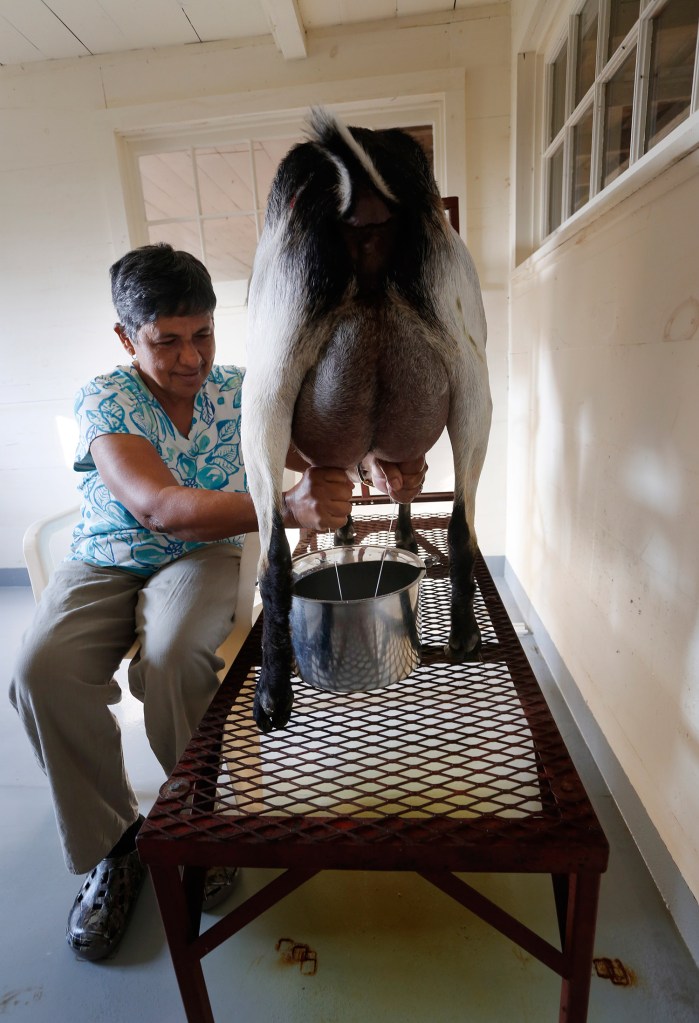
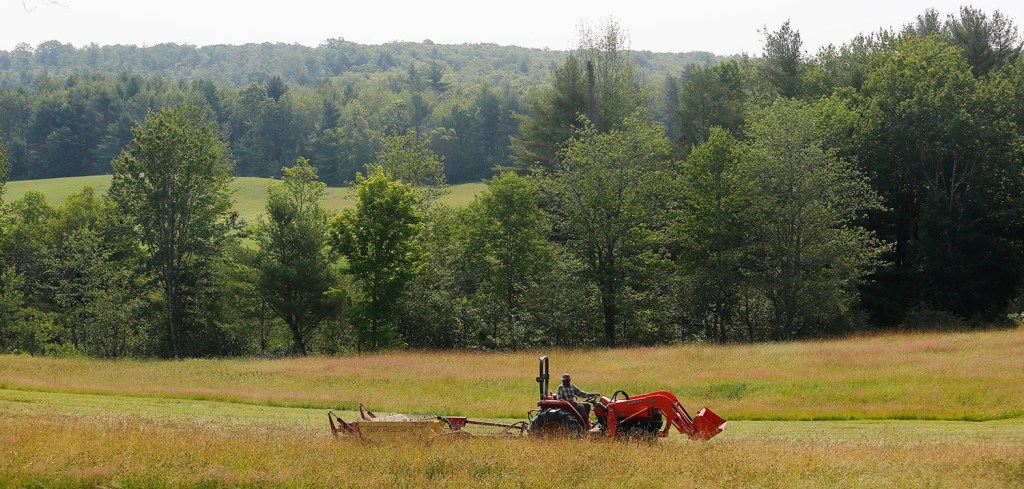
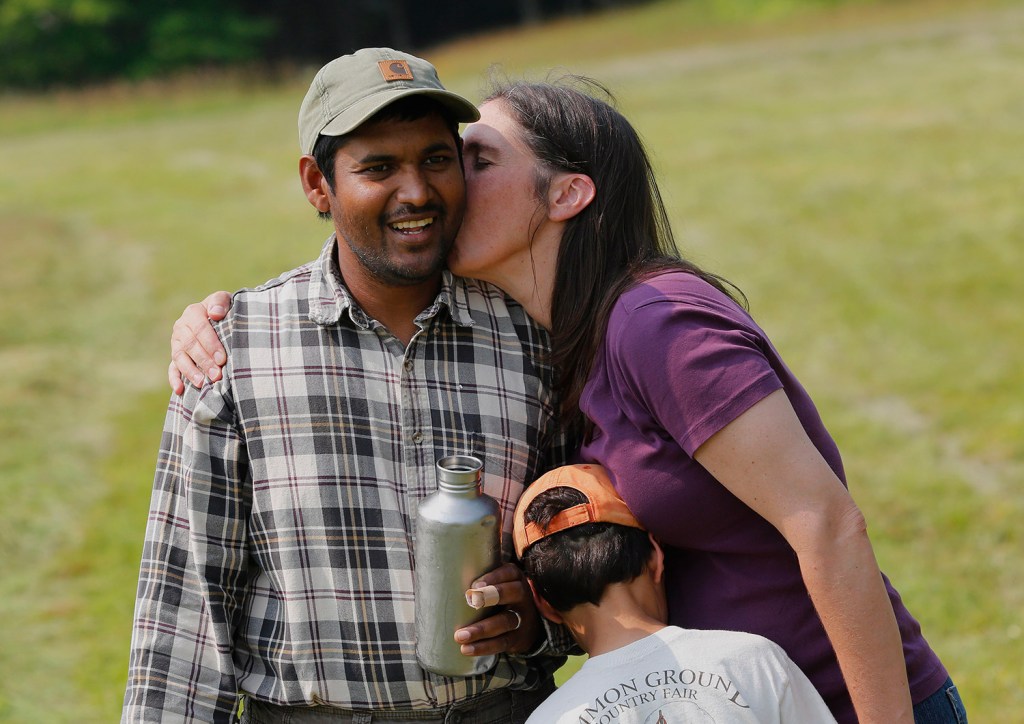
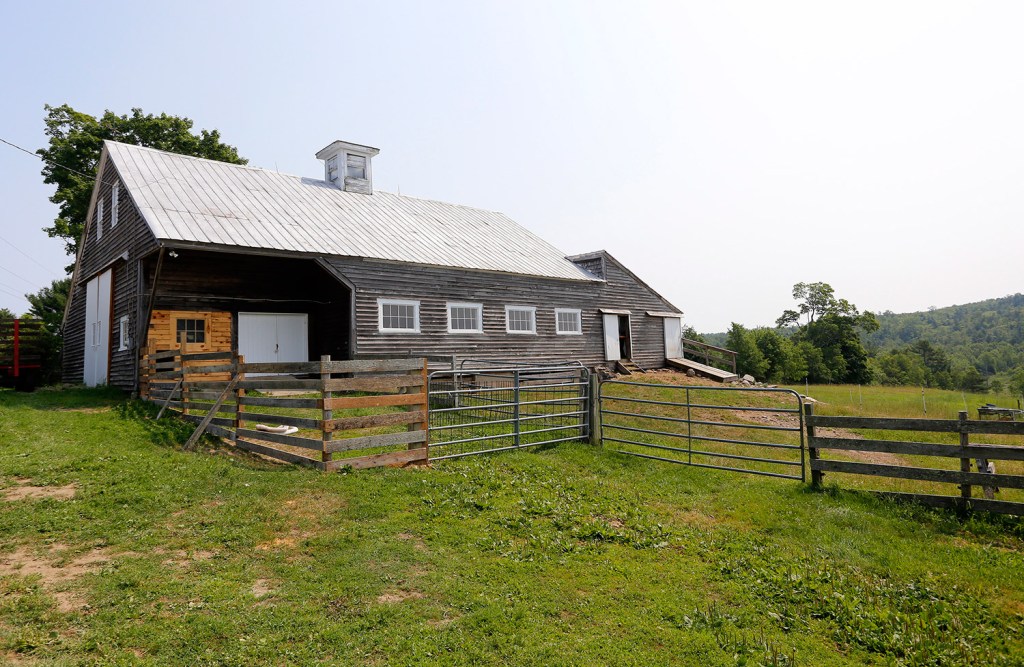
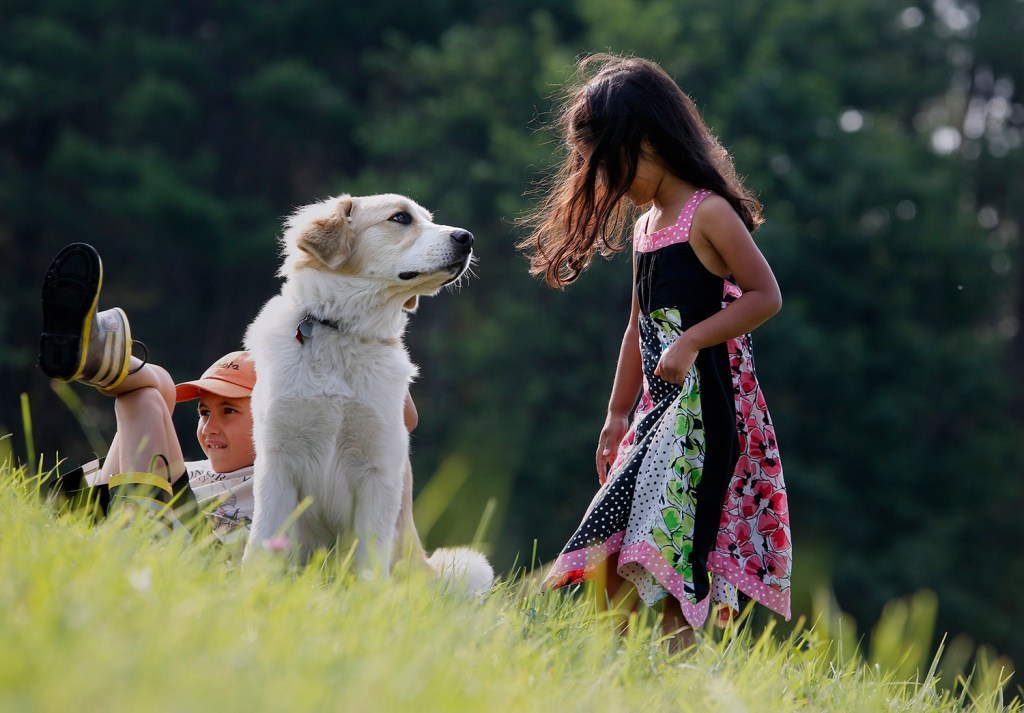
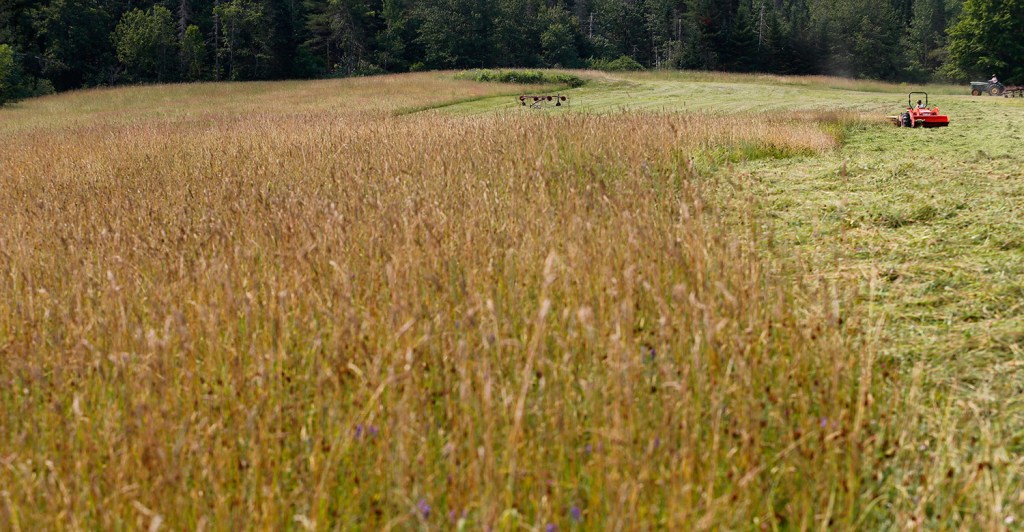
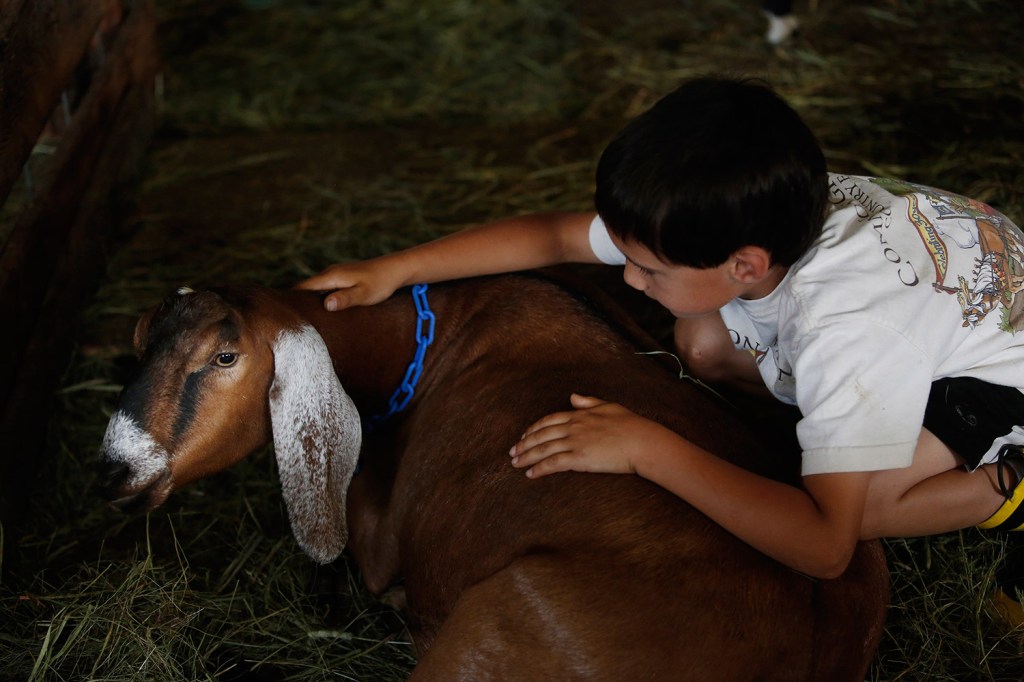
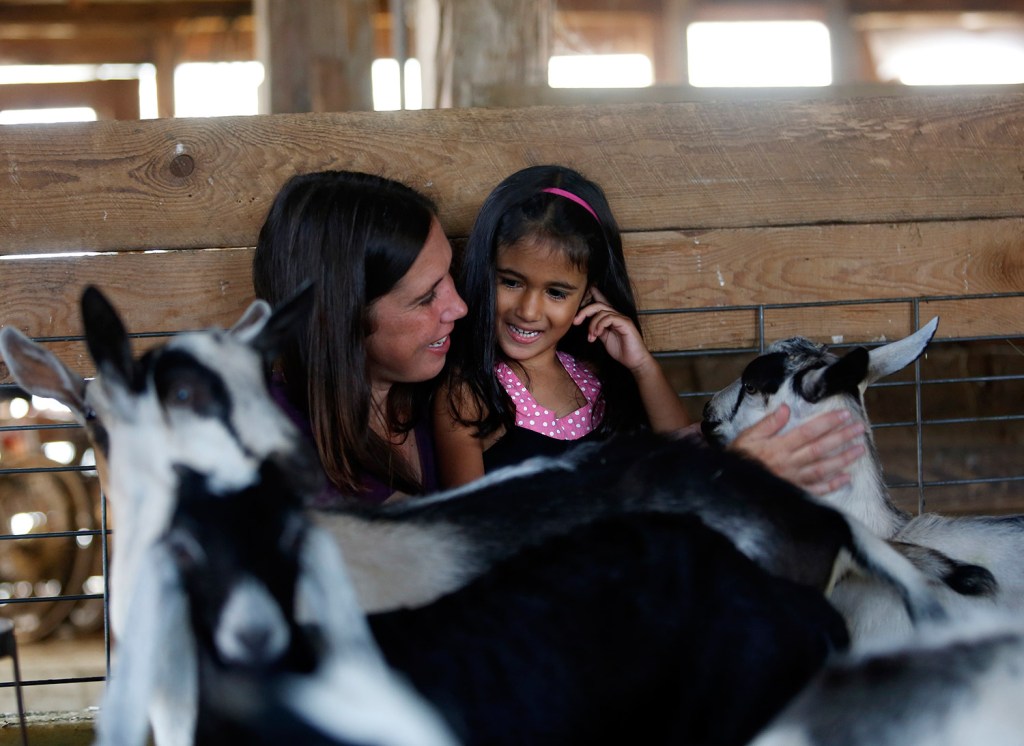
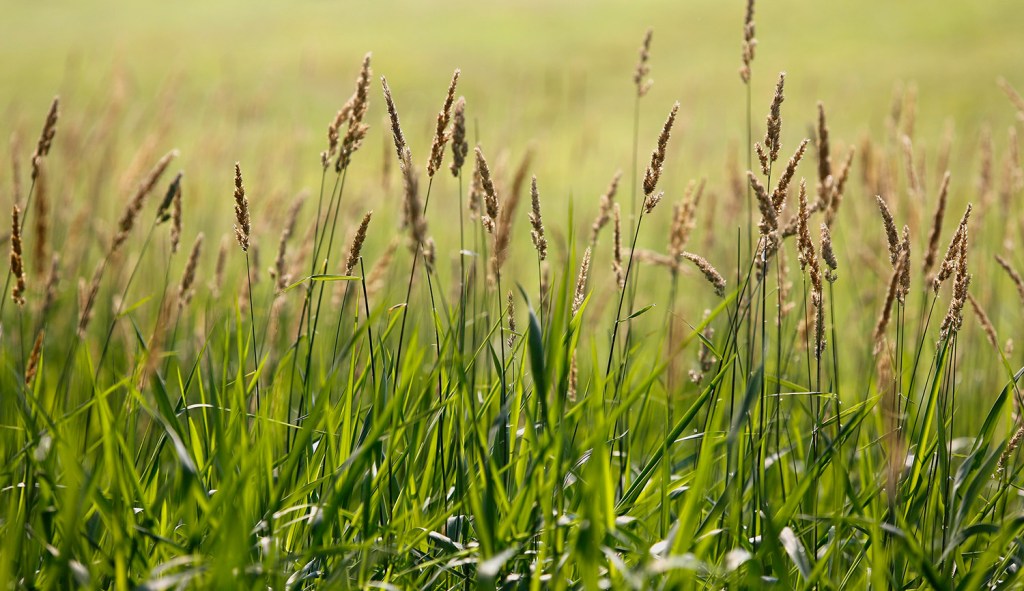
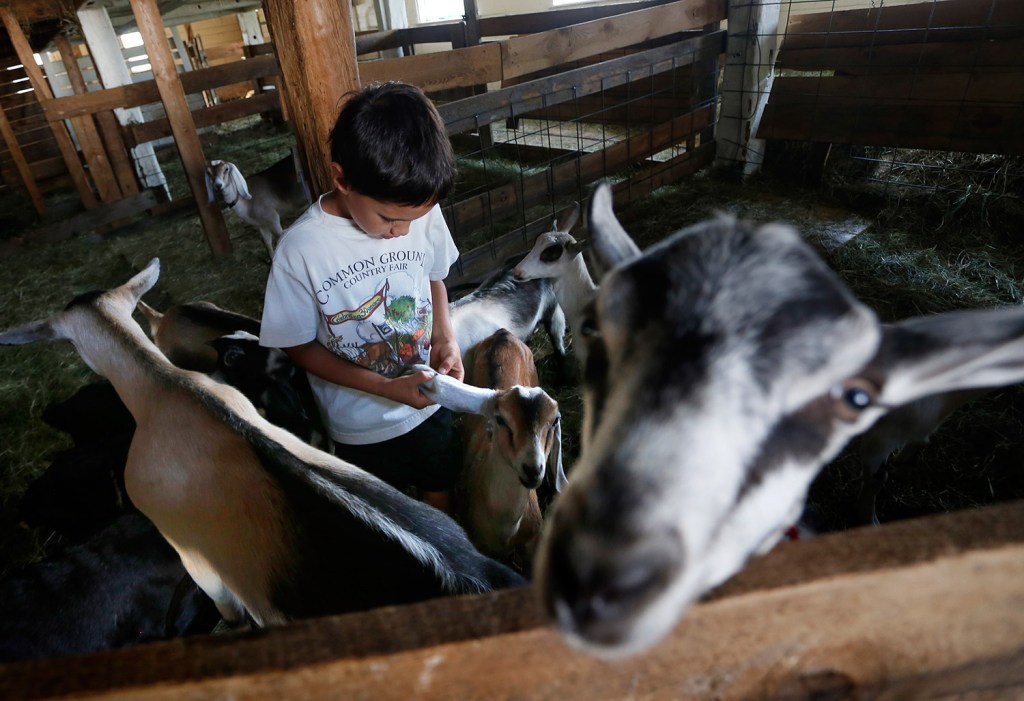
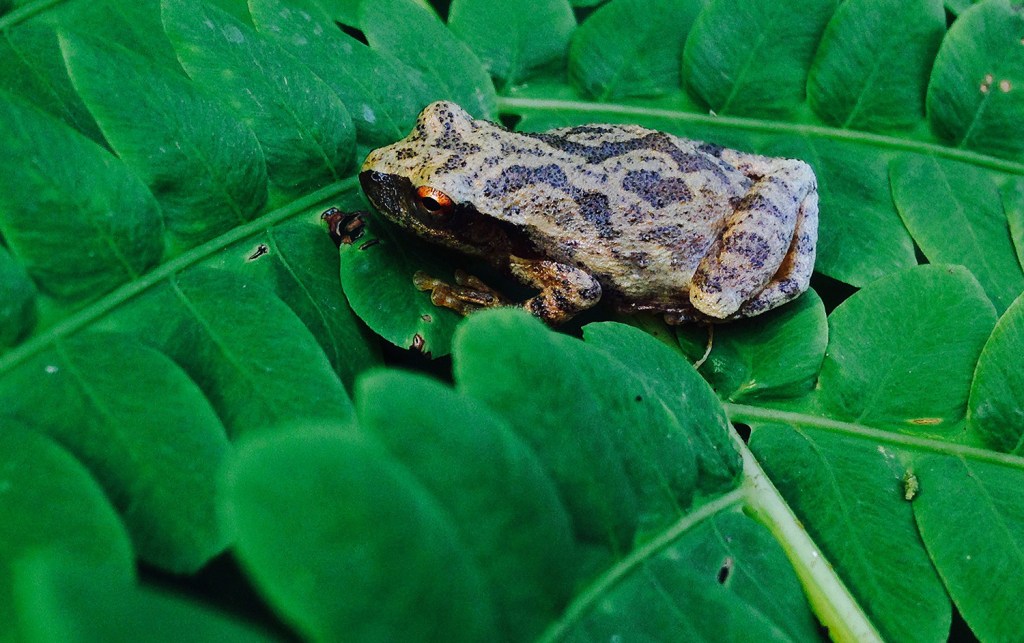
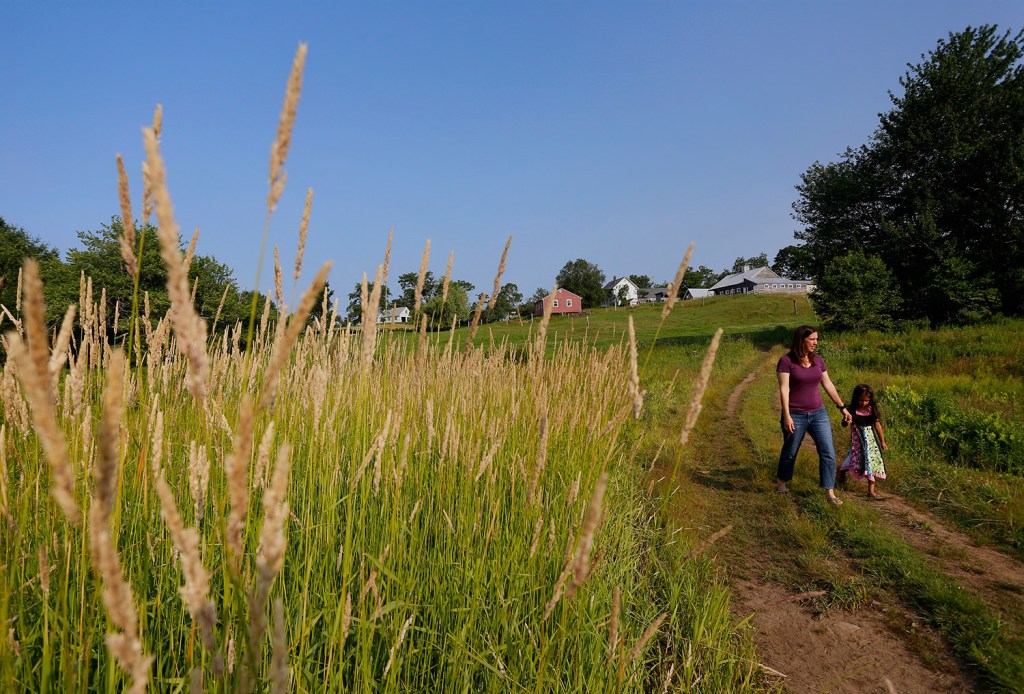

Success. Please wait for the page to reload. If the page does not reload within 5 seconds, please refresh the page.
Enter your email and password to access comments.
Hi, to comment on stories you must . This profile is in addition to your subscription and website login.
Already have a commenting profile? .
Invalid username/password.
Please check your email to confirm and complete your registration.
Only subscribers are eligible to post comments. Please subscribe or login first for digital access. Here’s why.
Use the form below to reset your password. When you've submitted your account email, we will send an email with a reset code.